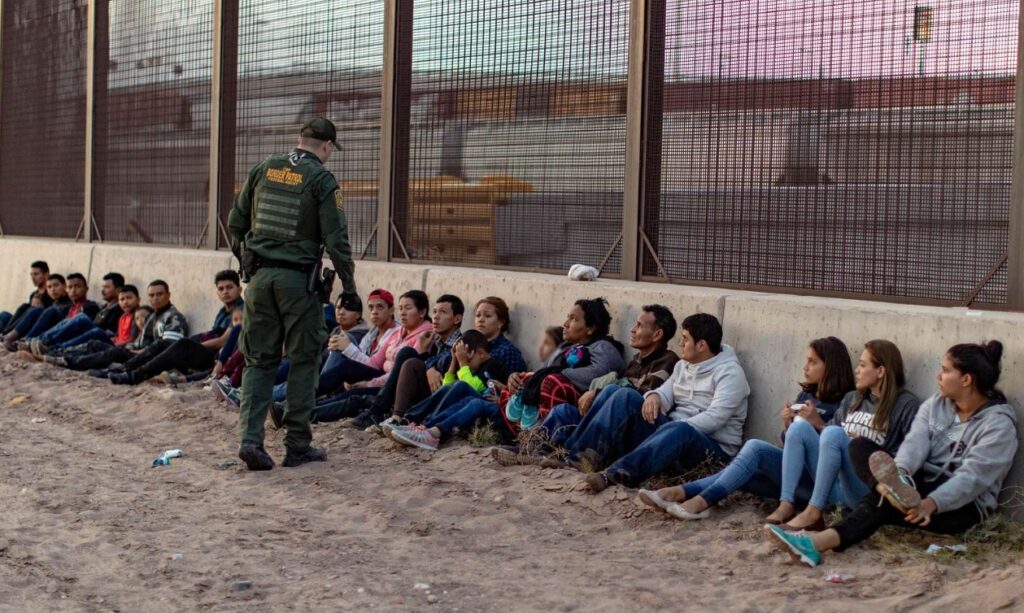Mexican President Claudia Sheinbaum responded to U.S. President-elect Donald Trump’s renewed threats of steep tariffs this week, asserting that migrant caravans are no longer reaching the U.S.-Mexico border. Her comments highlighted the escalating tensions as Trump plans to tighten immigration policies and impose a 25 percent tariff on Mexican imports. Trump stated that the tariffs would remain in place “until such time as Drugs, in particular Fentanyl, and all Illegal Aliens stop this Invasion of our Country!”
“Caravans of migrants no longer reach the border,” Sheinbaum said on Tuesday while presenting a letter she plans to send to Trump in the coming days, Newsweek reported. She also highlighted Mexico’s initiatives to reduce the flow of drugs, particularly the synthetic opioid fentanyl, while noting that it remains “a public health and consumption problem within your country’s society.”
As Trump prepares for his second inauguration, his tough rhetoric on migration has resurfaced, coinciding with a caravan of roughly 1,500 migrants from Central and South America heading toward the U.S. border before his proposed policies take effect. The urgency is partly driven by Trump’s vow to dismantle measures like the CBP One app, which currently allows migrants to schedule asylum appointments remotely. However, Sheinbaum reminded Trump that Mexico is not responsible for the caravans reaching the border, Newsweek added.
“Maybe President Trump doesn’t know this, but of those arriving at the border—which is significantly fewer, 75 percent less than in December 2023—half them have a CBP One appointment. In other words, they have an appointment. So, they [the U.S.] are the ones inviting them to come to the United States,” she said, without acknowledging the fact that the outgoing Biden-Harris refused to enforce U.S. immigration laws and overturned all of Trump’s border security policies on their first day in office.
Sheinbaum also highlighted Mexico’s alleged proactive role in addressing migration while criticizing the U.S. for failing to tackle the root causes. “If a percentage of what the United States spends on war were dedicated to peace and development, it would address the underlying causes of migration,” she said, advocating for regional investment over punitive measures but without revealing how much Mexico has spent or is offering to spend on similar initiatives.
Regarding tariffs, Sheinbaum suggested that Mexico could retaliate. “One tariff would be followed by another in response, escalating until we risk harming mutual businesses,” she warned, highlighting U.S. automakers with manufacturing plants on both sides of the border. Meanwhile, Canadian Prime Minister Justin Trudeau also disclosed on Tuesday that he had a “good” call with Trump, who similarly threatened to impose 25 percent tariffs on Canada. Trudeau expressed confidence that the U.S. and Canada could collaborate in “constructive ways” to address their differences.
However, Trump’s tariff threat faces significant challenges. The U.S.-Mexico-Canada Agreement (USMCA), which was negotiated and signed during Trump’s first term, prohibits member countries from unilaterally imposing tariffs on each other. Additionally, sudden measures could disrupt the interconnected economies, especially the auto industry, which relies heavily on cross-border supply chains, Newsweek reported.



